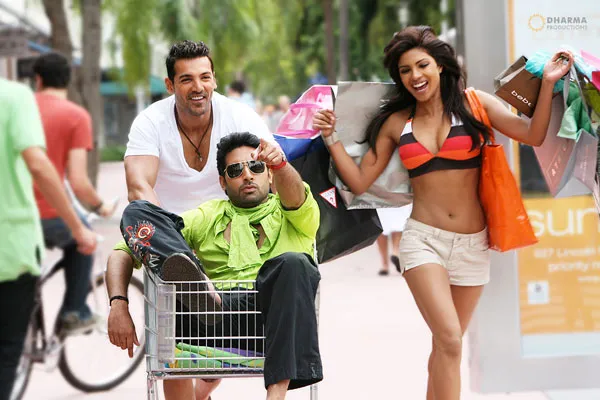Be it Kantaben’s very obvious disgust at the implication that Saif Ali Khan could be gay, or the trope of cis-gender men cross-dressing in Humshakals or even Abhishek Bachchan’s very stereotypical portrayal in Dostana (India’s first film that portrayed the LGBTQIA+ community in an apparently positive light) Bollywood has had infinite instances of demeaning and insulting the LGBTQIA+ community. Whether this comes out of ignorance or deliberation, the fact is that it is problematic. Apart from these glaringly obvious scenes, there have been a lot of microaggressions toward the community that lead to further issues.
There are a lot of harmful tropes that have been portrayed for a long time that perpetuate microaggressions. One of the most famous ones is showing the LGBTQIA+ community for comic relief. The “gay best friend” or very effeminate man hitting on the leading character, the queer community has always been used to provide comic relief in films. Another one is showing gay men next to straight men to show them as macho and manly (Case in point: Abhishek Bachchan in Bol Bachchan). A lot of films also portray lesbians to be only destructive and sexual, further stereotyping and alienating them.
The LGBTQIA+ community has often been subjected to offensive comments and discrimination. Certain terms that are not only derogatory but also extremely demeaning are still used. It is important to recognize the impact the use of such terms would have and make an effort to not use them. Some examples are:
- Butch/Dyke: Considered to be offensive terms for lesbians and are often used to comment on their masculinity.
- Faggot/Fag: Considered to be an offensive term used to refer to people not conforming to heteronormative standards.
- Hermaphrodite: An outdated term used to describe an intersex individual that is considered to be offensive.
- Transvestite/Tranny: An extremely derogatory and outdated term used to refer to trans men/women
- Deadnames: Deadnames are those given to trans men/women at birth which they have rejected. It is extremely hurtful, and wrong to refer to them by their deadnames.
While there are a lot of films and literature that get offensive and demeaning, there is also a ton of cinematic art that is inclusive, respectful and beautiful. Films such as My brother Nikhil, Fire, Kapoor and Sons, Margarita with a Straw and Aligarh are wonderful examples of positive depictions of the community. Admittedly, change takes a long time. But the mere fact that it’s begun is a cause to celebrate.
Cinema has the power to shape how millions think, speak, and act and that’s precisely why representation matters. When films rely on stereotypes or use queerness as a punchline, they don’t just misrepresent the LGBTQIA+ community; they reinforce prejudice in everyday life. But when stories are told with empathy, honesty, and respect, they become tools for change, breaking down barriers, normalizing difference, and fostering understanding.
Bollywood is slowly beginning to move away from ridicule toward representation, from caricature toward complexity. The responsibility now lies with filmmakers, writers, and audiences alike to demand and support narratives that are inclusive and authentic.
At the end of the day, visibility is not enough, dignity is. And every respectful portrayal brings us one step closer to a more accepting and humane society.


